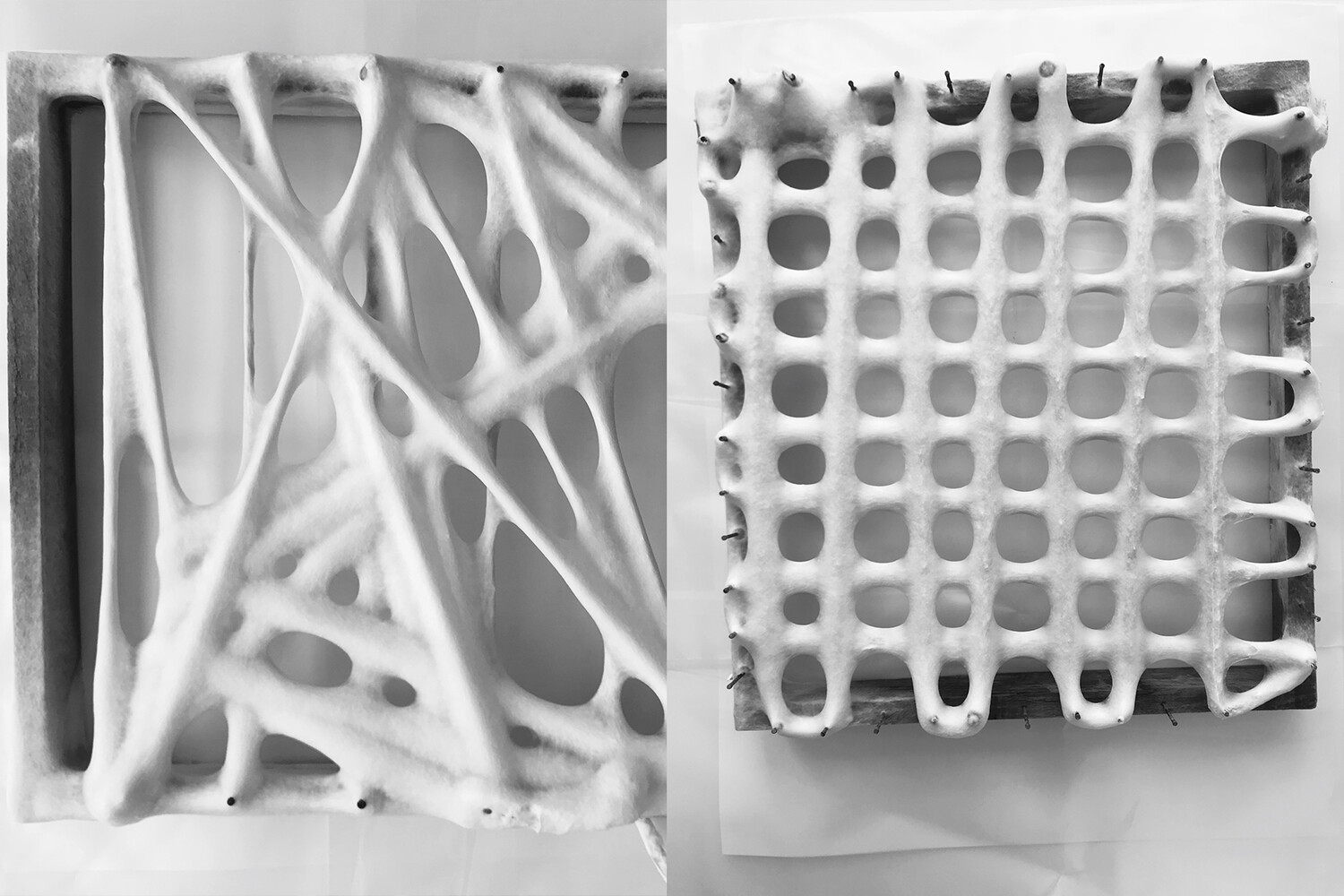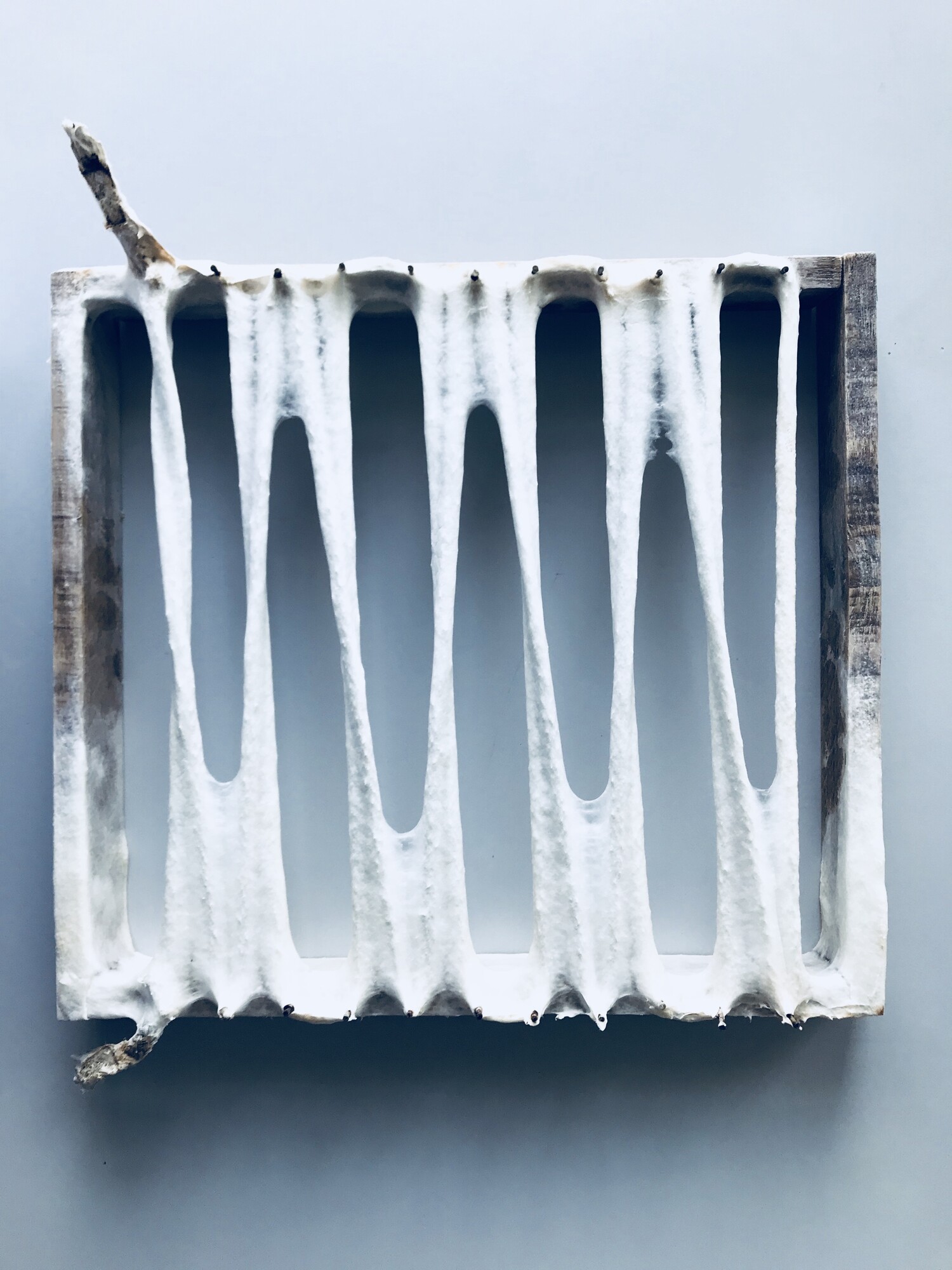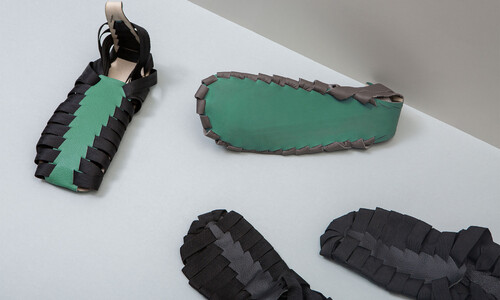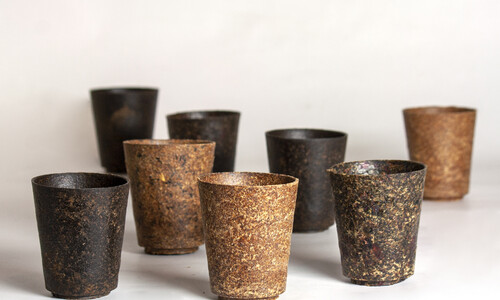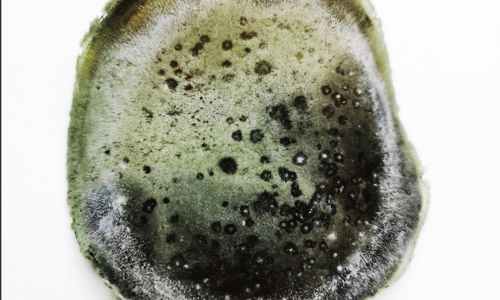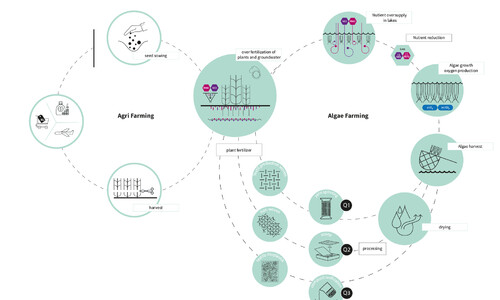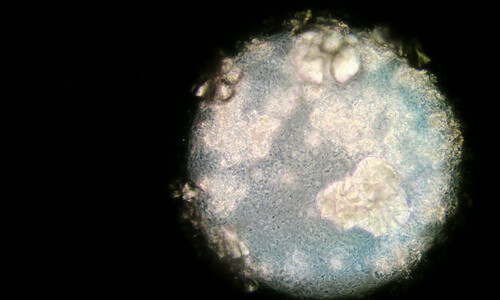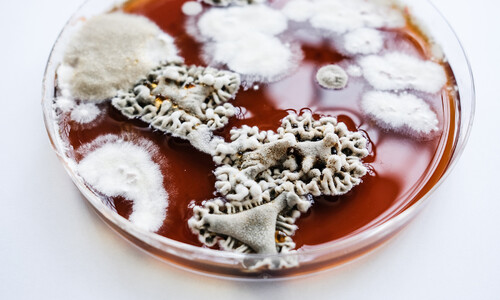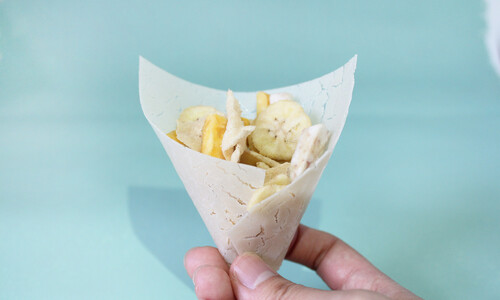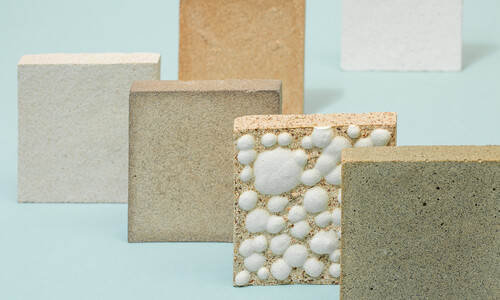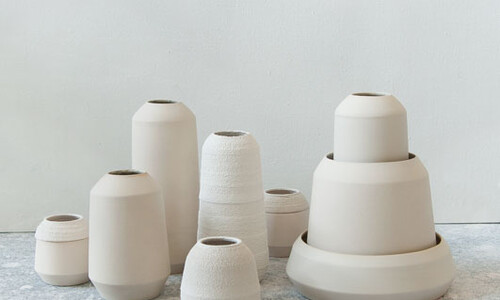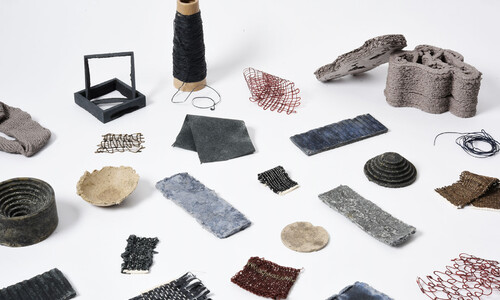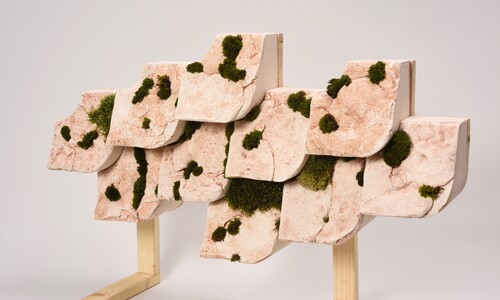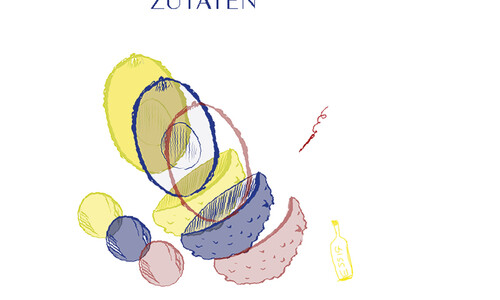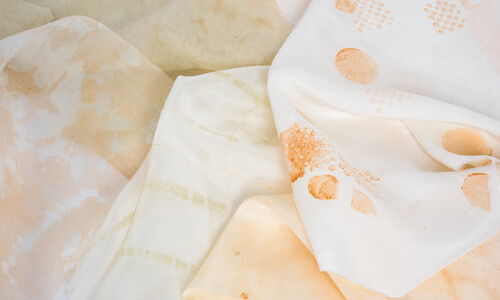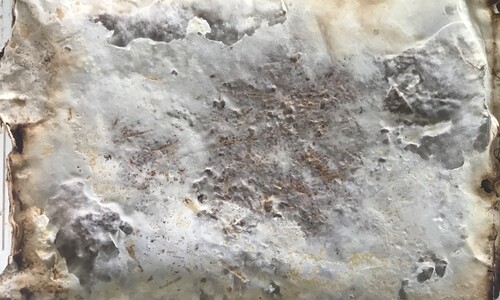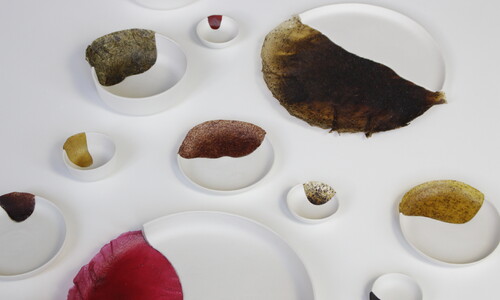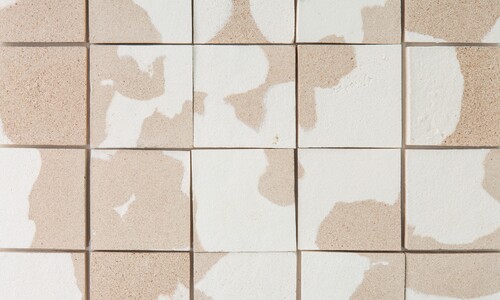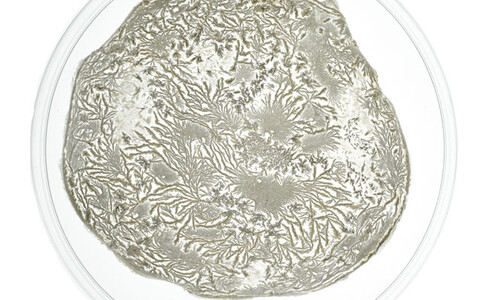The 'Fiber Fungi' project investigates the sustainable potential of mycelium-covered textile fibres from hemp and cotton production waste. The focus is on the development of three-dimensional fabrics.
Together with the Institute for Biotechnology at the TU Berlin a mycelium was identified, that grows particularly well on hemp and cotton fibres. Under suitable conditions, the native tinder sponge forms a three-dimensional, dense mycelium layer after only a short time. In combination with hemp and cotton fibres, it is possible to grow self-supporting three-dimensional structures. These can be used, for example, as room dividers or as building blocks for furniture, in architecture or for fashion accessories.
'Fiber Fungi' are compostable and function in a closed material cycle.
